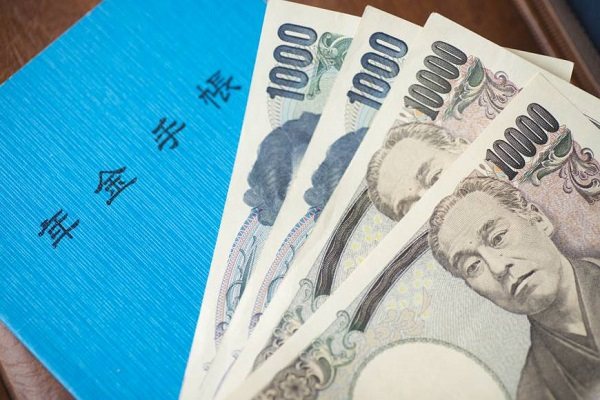Hello, dear readers of the Tyulyagin project! Today we will talk about pensions in different countries of the world. In the article you will learn what the size of the pension depends on and how the pension system in Russia is structured. Also here you will find a table with pension size in different countries of the world, that is, you will find out in which countries biggest pension in the world, and in which, on the contrary, it is the smallest. Also in the article you will find information about the retirement age in countries around the world as of 2020. Make yourself comfortable and enjoy reading!
Pension system of Russia
If we talk about Russia, at present, according to age, women retire at 55 years old, men at 60. However, since 2020, as a result of the pension reform, the retirement age is now 60 and 65 years, respectively.
Certain categories of citizens may be assigned the following pension:
- Due to disability.
- Due to the loss of a breadwinner.
- Based on length of service.
- For special distinction before the state.
A pension in Russia may be as follows:
- insurance;
- social;
- cumulative.
An insurance pension is awarded, as a rule, for old age, in the presence of disability or in the event of the loss of a breadwinner for any reason. Those citizens who cannot confirm their work experience, as well as members of their families, can count on a social pension.
Citizens of the Russian Federation born no earlier than 1967 have the right to open a personal account for accumulating pension contributions during their work experience. Subsequently, the size of the so-called funded pension will depend on the amount of savings. In 2020, the following average pension amounts were established in Russia:
- Insurance - 15,495 rubles.
- For disability - 14,593 rubles.
- Social — 5,180 rubles.
- For disabled people and war veterans - 46,000 rubles.
Return to contents
Required work experience
To be able to apply for a pension, you must confirm your work experience. Experts recommend carefully reading the calculation scheme for this indicator, finding out all the key parameters that influence it.
Qualifying years include:
- all years during which the employee had the status of employed;
- all years of employment in self-employed status, if National Insurance Contributions were paid;
- the period for which child benefit was provided, even if there was no work at that time;
- a period during which a person earned at least £155 per week.
Checking a person's pension status is done by making a request to the UK Government's HM Revenue and Customs (HMRC). If the length of service for the minimum pension turns out to be insufficient, you can pay the missing insurance premiums, thus purchasing the necessary years.
Germany
The level of development of the state depends, among other things, on the attitude towards pensioners. As an example, consider the German pension system. A state with one of the most powerful economies in the world provides its citizens who have reached retirement age with all the conditions for a decent life.
The pension threshold established in the country is the same for men and women and is equal to 67 years. Despite this, citizens of the country can retire without waiting for this age: this is possible in the case when the pensioner pays from personal savings a certain amount necessary to compensate for the funds not received by the pension fund (about 0.3% of the existing savings for each unearned month).
It would be logical to assume that everything is in order with the size of the pension in Germany. On average, women in Germany receive 630 euros, and men - 1080. The average pension is 770 euros.
It should be said that, despite the reunification of the two Germanys, which occurred after the fall of the Berlin Wall, the difference in the development of the east and west of the country still exists to this day.
Working at one of the German enterprises, a citizen of the country contributes about 20% of his earnings to the Pension Fund during his work experience. In this case, half of the contribution amount is collected directly from the employee, the second half is paid by the employer.
Every German has the opportunity to resort to the services of one of the insurance companies in order to independently determine the amount of pension payments and accumulate a pension amount.
To count on an insurance pension, a German citizen must work at one of the country's enterprises for at least 5 years. If certain conditions are met, a pension in Germany can also be accrued to foreigners.
Return to contents
Norway – $1542
According to the Global AgeWatch Index, Norway is included in the list of countries with the best pension system. This country spends as much as 4.5% of GDP on pensions, while only 1.4% is spent on the army. The pension itself includes a basic or additional pension, as well as a special benefit for accumulating income, including various allowances.

Pensioners Photo: Telegraph
USA
In the US, men retire at 67, women at 65 and receive an average of $1,503 per month. One of the features of the American pension system is the opportunity to accumulate the necessary pension amount by working in one of the country’s companies for 10 years. Many citizens manage to collect savings for two or even three pensions during their working career.

If an American wishes to retire earlier than expected, for example, at 62 years old (early retirement age in the States), then he will have to submit a corresponding request indicating the reasons that prompted him to take such a step. At the same time, the early retiree must be prepared for the fact that the pension amount will be 70% of the amount that he would receive if he retired at 67 years old, and that it will not be possible to reach 100% in the future.
Working at any enterprise, an American, as a rule, in addition to contributions to the state pension fund, has the opportunity to accumulate savings for a future pension in an additional pension fund, which is available in most large companies and corporations.
The amount of contributions to the state fund is about 15% of the salary, half of which is paid by the employee himself, and the other half by the enterprise. After reaching retirement age, about 30% of American citizens continue to work.
Return to contents
In European countries
The countries of the European Union are famous for their high standard of living for retirees. Local residents live longer and earn more as a result of a developed economic system.
The EU has the highest wage replacement rate with pensions, that is, the percentage of previous wages that pensioners can count on after retiring.
According to the International Labor Organization (ILO) convention, it cannot be lower than 40%. For example, in Spain it is 80%. In Russia, for comparison, it is only 29.8%.
Among non-EU countries, Switzerland has the highest pensions - a minimum of 1100 francs or 1800 US dollars per month. The replacement rate is at least 50%, which means that upon retirement, citizens can afford almost the same quality of life.
| A country | Retirement age | Average pension size, in dollars | Life expectancy, years | |
| For women | For men | |||
| Austria | 60 | 65 | 1500 | 81.4 |
| Belgium | 65 | 65 | 1200 | 81.5 |
| Bulgaria | 61.2 | 64.1 | 577 | 71.4 |
| Great Britain | 65.5 | 65.5 | 700 | 81.2 |
| Hungary | 63.5 | 63.5 | 400 | 73.1 |
| Germany | 65.7 | 65.7 | 850 | 81.2 |
| Greece | 67 | 67 | 700 | 82.1 |
| Denmark | 65 | 65 | 2800 | 80.8 |
| Ireland | 66 | 66 | 1000 | 82 |
| Spain | 65.5 | 65.5 | 1190 | 83.4 |
| Italy | 67 | 67 | 580 | 83.4 |
| Cyprus | 65 | 65 | 740 | 80.8 |
| Latvia | 63.9 | 63.9 | 300 | 70.1 |
| Lithuania | 62.4 | 63.8 | 408 | 74.7 |
| Luxembourg | 65 | 65 | 3000 | 82.1 |
| Malta | 62 | 62 | 1500 | 82.4 |
| Netherlands | 66.4 | 66.4 | 800 | 82.1 |
| Poland | 60 | 65 | 538 | 78.5 |
| Portugal | 68 | 68 | 500 | 81.9 |
| Romania | 60.11 | 65 | 446 | 72.5 |
| Slovakia | 65.4 | 65.5 | 502 | 77.4 |
| Slovenia | 59.8 | 60 | 500 | 81.2 |
| Finland | 63 | 63 | 1781 | 81.7 |
| France | 62 | 62 | 700 | 82.5 |
| Croatia | 62 | 65 | 300 | 78.3 |
| Czech | 62.8 | 63.4 | 680 | 79.2 |
| Sweden | 61 | 61 | 1100 | 82.7 |
| Estonia | 63.5 | 63.5 | 656 | 78.6 |
Great Britain
Experts believe that the UK pension system is close to perfection. As in most other countries, pensions in the kingdom can be public, private or based on length of service. Men retire at age 65, women at age 60–65. If a British pensioner continues to work after reaching this age, a pension supplement is added to the pension for each year worked.
The average UK citizen earns £125 per week.
To qualify for a basic pension, a citizen of the kingdom must work in the country for at least 10 years: each year worked increases the amount of the future pension by 4.44 pounds sterling per week. The minimum basic pension would therefore be £44.4 per week.
If a Briton has chosen to accumulate a pension amount in one of the private financial institutions, he can independently determine the amount of payments; no restrictions are set.
As a rule, employees contribute 5-8% of their earnings to such savings funds: in accordance with recent changes in legislation, now, if necessary, you can withdraw a quarter of the amount accumulated in this way without paying taxes.
Some English people take this step, for example, to improve their living conditions.
More than significant pension supplements are provided in the UK for veterans of the Second World War: depending on the military rank or the severity of the injuries received, such a pensioner can receive in Russian currency from 150 to 650 thousand rubles per month.
Of course, with such passive income, a British pensioner may well devote the autumn of his life to travel, all kinds of hobbies, and the implementation of projects for which he did not have enough time in his youth.
Return to contents
How do foreigners receive pensions in England?
Pension Credit is a benefit from the state that even foreigners can count on under certain conditions. This benefit will be accrued even without work experience, if you prove your legal presence in the country. Stateless immigrants can either earn work experience in the UK or simply take out a minimum allowance in old age. If they are entitled to a pension in their home country, they will not be able to receive it a second time in English territories. You will have to refuse one of the payment options.
Of course, the question arises: what do those who come here and work on a permanent or temporary basis get? This depends on each case individually.
Firstly, if you move here permanently, work, pay taxes and contribute a certain amount to National Insurance every month, then the same rules for receiving a state pension apply to you as to the British.
You should also consider joining your company pension scheme when applying for a job here, or consider opening a personal pension plan with a private provider.
If you have just moved here and are approaching retirement age in a few years, then you most likely will not have time to work the required number of years to receive a full British state pension. Then you should make sure that you will receive the state pension of the country you came from. However, if you work in Britain temporarily, then the question of receiving a state pension depends on your nationality and country of residence. If you have lived and worked in the European Union or European Economic Area, each country will pay you the State Pension that you are entitled to under European and that country's laws.
The pension institutions of these countries will exchange information about your work history, and based on this information your state pension in each of these countries will be calculated. To find out more about the British State Pension, your entitlement and associated payments, contact the Pension Service. This can be done on the website or by phone.
China
Perhaps the main feature of China's pension system is the lack of payments to agricultural workers. This situation is familiar to Soviet citizens: until the 60s of the last century, collective farmers in the USSR were not officially paid a pension; a small allowance was paid by the collective farm or state farm. Managers, civil servants and employees of industrial enterprises can count on pension payments in China.
For Chinese men, retirement age is 60 years old, for female managers - at 55 years old, for the rest of the fairer sex - at 50 years old.

In general, despite the unprecedented economic growth that China has demonstrated over the past three decades, most of the issues related to the pension provision of its citizens continue to remain unresolved. Today, it is clear to the naked eye how China’s positions in most world rankings, which reflect the general state of the economy and the size of the pensions of citizens of the Middle Kingdom, do not align.
The average pension in China today is about 150-200 USD.
During his working life, a Chinese worker contributes 11% of his salary to the state pension fund: 4% is collected automatically when payroll is calculated, and 7% is paid by the employer. The pension amount is about 20% of the average salary. To earn the right to receive a so-called basic pension, you must work for a state-owned enterprise for 15 years or more.
One of the explanations for such a low level of pensions in China can be considered the presence of a large number of citizens whose age has exceeded 65 years.
This situation was the result of birth restrictions that existed until recently. The Chinese nation today is recognized as aging: the number of pensioners in the country exceeds the total population in Russia. Economists say that about 40% of the country's budget is spent on pension payments.
Return to contents
Benefits for pensioners in England
For older people, the government has provided many forms of benefits, of which it is worth highlighting:
- free travel on public transport;
- benefits for utilities. For example, significant discounts on heating in the winter months;
- favorable conditions in banks: high interest rates on savings accounts, etc.
Despite the variety of pension forms and the seeming instability of the pension system itself, older people in England are among the most protected in the world. Plus, they have the right and opportunity to choose in favor of one or another type of pension payments. In conclusion to all of the above, we can conclude that English pensioners are a protected segment of the population.
Japan
The average Japanese pension, which today is about 1,700 USD, allows pensioners of the Land of the Rising Sun not to experience financial difficulties and feel quite comfortable. This money is quite enough for food and to pay for utilities; there is also some left over for leisure activities, which, however, at this age can be quite moderate in terms of expenses.

A Japanese can retire at the age of 65, this applies to both men and women. However, if a citizen of the country expresses a desire to retire earlier, state laws allow him to do this: you can stop active work at the age of 60, but the pension amount will decrease by 25%.
If a Japanese person continues to work after reaching retirement age, each year worked adds a certain amount to pension payments, and by the age of 70, the pension may increase by a quarter.
According to statistics, the Japanese are the longest living nation in the world. The number of citizens who have passed the century mark exceeds 60 thousand people, the average life expectancy is 84 years.
Experts believe that proper nutrition helps the Japanese achieve such years: the diet of residents of the Land of the Rising Sun is dominated by rice, soy, and seafood. In addition, upon retirement, the Japanese continue to lead an extremely active lifestyle. Japanese pensioners can be seen in any part of the world as restless tourists.
The vast majority of Japanese elderly people do the so-called morning exercises “by radio”; older Japanese people try to prefer walking to traveling by car. In addition, the country has a healthcare system recognized by many experts as the best in the world. After 60 years, every Japanese regularly undergoes medical examinations, keeping their finger on the pulse, literally and figuratively.
Return to contents
Denmark
When considering the topic of pension provision for citizens in different countries of the world, it is impossible not to mention Denmark - the country with the highest pension in the world today. On average, a Danish pensioner receives 2,800 US dollars every month, and this is no joke. It can be difficult for a Russian pensioner to understand how this is possible.
The average life expectancy in Denmark today is 80 years, while Danes retire at 65–67 years of age.

The priority direction of government policy today is to create the most favorable living conditions for people of retirement age, which is why many people call Denmark a paradise for retirees. Often a pensioner in a country feels more secure than a working person.
In addition to a more than decent state pension, Danes often have savings in non-state pension funds, which can result in even higher income for a pensioner. Such a state strategy is aimed, among other things, at ensuring that pensioners remain independent and capable for as long as possible, since the maintenance of elderly people in nursing homes is carried out at the expense of public funds.
In order to provide additional support to the country's pensioners, a branch of the public organization DanAge has been created in each Danish municipality.
Return to contents
Finland – $1982 dollars
When Finnish citizens retire, the state determines its size based on the following criteria: whether the person was exposed to hard physical or mental labor and whether the person worked in enterprises with hazardous substances. Also, immigrants who have lived there for more than 40 years can receive pensions on the same basis as native Finns.

Pensioners Photo: Focus.ua
France
As in most EU countries, French pensioners retire at 65 (women) or 67 (men). The French live on average about 80 years, and the average pension in the country is about 1,400 euros.
The French pension system is part of the general social insurance system, which is recognized by experts as one of the most complex and multifaceted in the world. The downside to some of the complexity of pension rules is the ability to protect yourself from the most unexpected situations and provide for the most favorable way to receive pension payments.
In other words, a French pensioner can expect his pension to be calculated on an individual basis based on his circumstances. At the same time, not a single nuance related to the amount of pension payments will be overlooked (for example, disability received at work, working in hazardous conditions, etc.).
According to the laws of the country, an employee claiming the maximum pension must work in French enterprises for 40 years or more. Subsequently, the 25 highest paid years out of these forty will be taken into account when determining the size of the pension. In addition to the basic pension, in France there is a so-called funded pension, calculated in a special way using a special point system.
As a result, a retired Frenchman receives monthly payments in the amount of half his salary plus a certain amount from insurance savings.
If a citizen of a country has worked for, for example, 41.5 years (or 166 quarters) in his life, he can qualify for 100% pension payments. Each quarter unfinished before this deadline reduces the amount of payments by 1.25%. It should be borne in mind that if your work experience was interrupted due to unemployment or pregnancy (up to six months), then this time is counted when calculating your pension. Return to contents
In African countries
In many African countries, pensions are simply not available. There is no pension system as such, and most citizens can rely only on their own strength, working throughout their lives for the benefit of the economy of agricultural countries.
According to the International Labor Organization, about 20-25% of Africans receive pensions . For example, the pension system in Angola is more or less developed, where there are a large number of state and non-state funds, as well as banks, which make it possible to preserve and increase the pension capital of local residents.
Table: average pension in different countries of the world (data as of February 2020)
| A country | Pension (indicated in the national currency of the country) | Pension (in US dollars) |
| Australia | AUD 1505 | 1000 |
| Austria | 1400 euros | 1543 |
| Azerbaijan | 300 Azerbaijani manats | 176 |
| Argentina | 5446 pesos | 88 |
| Belarus | 446 Belarusian rubles | 199 |
| Bulgaria | 412 leva | 233 |
| Brazil | 1250 Brazilian reais | 278 |
| Great Britain | £535 | 685 |
| Hungary | 135,000 forints | 438 |
| Germany | 770 euros | 849 |
| Greece | 697 euros | 768 |
| Denmark | 2,800 euros | 3087 |
| Israel | 5300 shekels | 1532 |
| Iran | 80,250 Iranian rials | 191 |
| Ireland | 1071 euro | 1178 |
| Spain | 987 euros | 1099 |
| Italy | 1,200 euros | 1320 |
| Kazakhstan | 81,062 tenge | 212 |
| Canada | 2000 Canadian dollars | 1491 |
| Cyprus | 740 euros | 815 |
| Korea | 910,000 Korean won | 753 |
| Kuwait | 906 Kuwaiti dinars | 2980 |
| Lithuania | 374 euros | 408 |
| Mexico | 18,000 Mexican pesos | 1000 |
| Netherlands | 1,300 euros | 1418 |
| New Zealand | NZD 1714 | 981 |
| Norway | NOK 14,667 | 1584 |
| United Arab Emirates | AED 10,200 | 2776 |
| Poland | 2100 zlotys | 538 |
| Portugal | 550 euros | 600 |
| Romania | 1265 lei | 446 |
| Russia | 15,431 rubles | 242 |
| Singapore | 600 Singapore dollars | 431 |
| Slovakia | 460 euros | 502 |
| USA | $1,503 | 1503 |
| Turkish Republic | 8000 Turkish lira | 1329 |
| Finland | 1,632 euros | 1781 |
| France | 1000 euros | 1091 |
| Croatia | 2500 kn | 366 |
| Czech | 11807 CZK | 460 |
| Chile | 157,952 Chilean pesos | 198 |
| Switzerland | 2,000 francs | 2046 |
| Sweden | 1,697 euros | 1866 |
| Estonia | 582 euros | 656 |
| Japan | 183,700 Japanese yen | 1700 |
List of countries where there are no old-age pensions:
- Thailand,
- India,
- Niger,
- Kenya,
- Suriname,
- Nigeria,
- Tanzania,
- Honduras,
- Iraq,
- Philippines,
- Vietnam,
- Pakistan,
- China.
Also check out what kind of pension they receive in Thailand, New Zealand and Australia.










